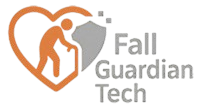Here’s a comprehensive guide to dietary considerations for obese older adults in the U.S. to prevent falls, tailored to American dietary habits and scientific recommendations:
�� Dietary Guidelines for Fall Prevention in Obese Older Adults
Focus: Weight management, muscle/bone strength, and stability.
- Prioritize High-Protein, Nutrient-Dense Foods
- Why: Muscle loss (sarcopenia) worsens balance. Protein preserves muscle mass, aiding stability.
- American-Friendly Choices:
- Lean poultry (chicken/turkey), fish (salmon, tuna), eggs, Greek yogurt, cottage cheese, and legumes (beans, lentils).
- Plant-based options: Tofu, edamame, and protein shakes (low-sugar).
- Goal: 20–30g protein per meal (e.g., 3 oz chicken + 1 cup lentils).
- Boost Calcium & Vitamin D for Bone Health
- Why: Obesity strains joints; osteoporosis increases fracture risk after falls.
- U.S. Sources:
- Fortified dairy/non-dairy milk (almond, soy), low-fat cheese, broccoli, and fortified cereals.
- Vitamin D: Fatty fish, eggs, and sunlight exposure (10–15 min/day).
- Supplementation: Consider 800–1200mg calcium + 600–800 IU vitamin D daily (consult a doctor first).
- Choose Fiber-Rich Whole Grains & Vegetables
- Why: Refined carbs (white bread, pasta) spike blood sugar, causing dizziness/falls. Fiber aids weight control and gut health.
- Smart Swaps:
- Replace white rice with quinoa, oats, or brown rice.
- Opt for whole-grain bread over white.
- Fill half your plate with non-starchy veggies (spinach, carrots, peppers).
- Avoid Pro-Inflammatory & High-Risk Foods
- Foods to Limit:
- Trans fats: Fried foods, fast food, packaged snacks (chips, crackers).
- Excess sugar: Sodas, desserts, sugary cereals—linked to weight gain and inflammation.
- High-sodium foods: Processed meats (bacon, sausages), canned soups—worsen hypertension, increasing fall risk.
- Hydration Tip: Drink 6–8 glasses of water daily. Dehydration causes lightheadedness.
- Foods to Limit:
- Adopt Balanced Eating Patterns
- Portion Control: Use smaller plates; avoid oversized restaurant servings.
- Meal Timing: Eat every 3–4 hours to prevent low blood sugar (dizziness).
- Mediterranean Diet Approach: Olive oil, nuts, seeds, and fish reduce inflammation and support heart health.
⚠️ Key Avoidances & Pro Tips
- Alcohol: Limit to ≤1 drink/day. Impairs balance and judgement.
- Caffeine: Excess intake may cause dehydration or arrhythmias.
- Footwear Note: Pair diet with non-slip shoes (avoid smooth soles).
- Comprehensive Care: Combine diet with balance exercises (e.g., tai chi), home safety checks (remove rugs, add grab bars), and medication reviews (some drugs cause dizziness).
�� In Summary: Daily Plate Guide
| Food Group | Include | Limit/Avoid |
| Protein | Chicken, fish, beans, tofu | Red meat, fried meats |
| Carbs | Quinoa, oats, veggies | White bread, sugary cereals |
| Fats | Olive oil, avocado, nuts | Trans fats (chips, fast food) |
| Dairy | Low-fat yogurt, fortified milk | Full-fat cheese, cream |
Consistency is key: Pair nutrition with strength/balance training (e.g., chair squats, heel-to-toe walks) and regular health screenings. Always consult a doctor or dietitian for personalized plans.
By focusing on whole foods, portion control, and key nutrients, obese seniors can manage weight, strengthen bones/muscles, and significantly reduce fall risks—aligning with American dietary preferences and health guidelines.
